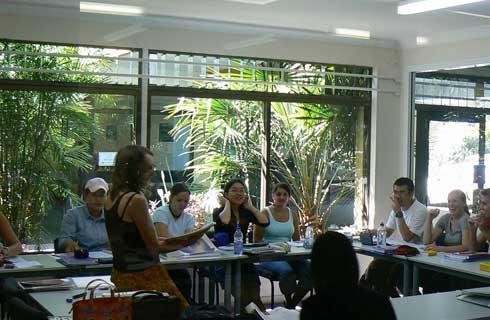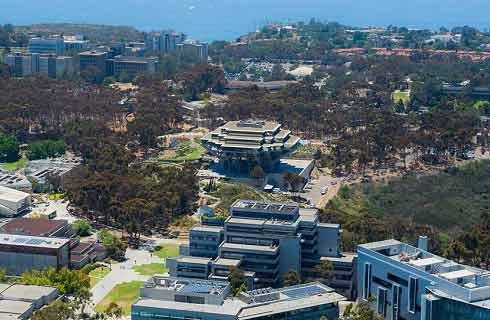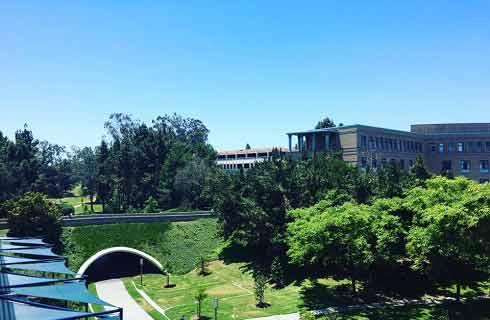- IDP China>
- 课程库>
- 建筑与规划>
- 建筑学与建筑 >
- 建筑与城市环境>
- Graduate Certificate in Architectural Science - Illumination Design
建筑科学研究生证书(照明设计)
Graduate Certificate in Architectural Science - Illumination Design

学历文凭
Graduate Certificate

专业院系
The University of Sydney School of Architecture, Design and Planning

开学时间

课程时长

课程学费

国际学生入学条件
Admission to this course requires:
bachelor's degree from the University of Sydney, or an equivalent qualification.
Graduate Certificate students may apply to upgrade to the Diploma or Masters at the completion of their program (with a weighted average mark of at least 70).
IDP—雅思考试联合主办方

雅思考试总分
- 雅思总分:
- 托福网考总分:
- 托福笔试总分:
- 其他语言考试:
CRICOS代码: 082894M
申请截止日期: 请与IDP联系 以获取详细信息。
课程简介
Build your professional expertise in lighting for architectural and urban environments and learn how sustainable lighting technologies are changing illumination design practice. Career pathways include lighting design consultancies, architectural practices, lighting manufacturers and distribution. With extensive experience analysing and controlling the physical phenomena affecting buildings, practitioners of Architectural Science have a profound impact on the function, aesthetics and efficiency of architectural spaces. Our entire visual experience depends on light. It has a profound impact on the function and aesthetics of architectural spaces, and is a vital part of architecture and interior design. In this innovative course, we focus on the knowledge and critical thinking skills needed to remain current with technological breakthroughs and to drive innovation in illumination design in the future. As a student of Illumination Design, you will develop your expertise in lighting for architectural and urban environments. You will understand how rapidly-evolving sustainable lighting technologies are changing industry practise and are contributing to new opportunities for creative applications of modern materials, colours and technologies. This course will develop your understanding of the relationship between lighting and allied-build environment disciplines as well as the interaction of optics, psychology and physiology. You will be given the preparation you need to adapt to technological changes and lead future breakthroughs.
相关申请
 预科
预科 奖学金
奖学金 实习机会
实习机会 在校学习
在校学习 跨境学习
跨境学习 校园授课-线上开始
校园授课-线上开始 在线/远程学习
在线/远程学习
开学时间&学费
学费信息仅供参考,请与IDP联系以获取详细信息
| 开学时间 | 时长 | 学费 | 地点 |
|---|
学校排名

世界排名60
数据源:
泰晤士高等教育世界大学排名
关于悉尼大学

位于澳大利亚首都的悉尼大学是举世闻名的机构,一直名列世界前20名大学之列(2024年QS世界大学排名)。在2022年QS毕业生就业能力排名中,悉尼大学的毕业生也位居澳大利亚第一和世界第四。来自世界各地的学生进行本科和研究生水平的学习。学生可以在澳大利亚最广泛的课程和学科中选择。该大学提供超过400个学习领域供学生选择,大学5门学科位居世界前十名,另外还有28门学科位居世界前50名(2022年QS世界大学学科排名)。通过实习和工作经验以及通过大学海外项目进行国际交换(包含在学位内的可选项目),从而增加了学生的就业机会。学生将在支持和启发的环境中学习和发展,大学会提供给学生大量的服务,这包括学术和专业支持,残疾服务,保密咨询服务,健康服务还有财务援助办公室提供服务。学生还可以参加由悉尼大学学生会(USU)运营的250多个校园俱乐部和社团,从体育运动到文化团体应有尽有。校园内有许多可供学生使用的设施,其中包括带奥林匹克规格温水游泳池的健身室和攀岩中心。此外,还有美术馆、博物馆、咖啡馆、餐厅和酒吧供学生休闲。学生还可以使用南半球最大的学术图书馆。悉尼是世界上最优秀的城市,根据《经济学人》2021年安全城市指数显示,悉尼被评为第四大最安全的居住地,当地的学生体验得以丰富和提升。
本校相关课程

Graduate Certificate in Clinical Dentistry - Advanced Restorative
学历文凭
Graduate Certificate
开学日期
课程费用总额


Graduate Diploma in Clinical Dentistry - Advanced Restorative
学历文凭
Graduate Diploma
开学日期
课程费用总额


城市和区域规划研究生文凭
学历文凭
Graduate Diploma
开学日期
课程费用总额


教育硕士
学历文凭
Masters Degree (Coursework)
开学日期
课程费用总额


专业工程学硕士(电力)
学历文凭
Masters Degree (Coursework)
开学日期
课程费用总额


专业工程学硕士(电信)
学历文凭
Masters Degree (Coursework)
开学日期
课程费用总额

其他相关课程

Bachelor of Interior Design (Commercial)
 比利·布鲁设计学院
比利·布鲁设计学院学历文凭
Bachelor Degree
开学日期
课程费用总额


规划硕士(城市设计)/景观建筑硕士
 阿德莱德大学
阿德莱德大学学历文凭
Masters Degree (Coursework)
开学日期
课程费用总额


城市和区域规划硕士
 堪培拉大学
堪培拉大学泰晤士高等教育世界大学排名:470
学历文凭
Masters Degree (Coursework)
开学日期
课程费用总额


室内建筑学士
 堪培拉大学
堪培拉大学泰晤士高等教育世界大学排名:470
学历文凭
Bachelor Degree
开学日期
课程费用总额


城市和区域规划硕士-课程
 西澳大学
西澳大学学历文凭
Masters Degree (Coursework)
开学日期
课程费用总额


室内建筑设计学士学位
 悉尼科技大学
悉尼科技大学学历文凭
Bachelor Degree
开学日期
课程费用总额










